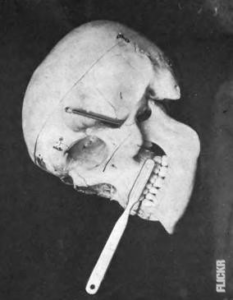The Mysterious World of Muscle Cramps
Muscle cramps are a fascinating phenomenon that has puzzled scientists and athletes alike for centuries. From the sudden, excruciating pain to the visible twitching and contraction of muscles, these involuntary spasms are both intriguing and debilitating. But what really happens behind the scenes? Let’s delve into the enigmatic world of muscle cramps to uncover their origins and causes.
The Culprits: Overworked Muscles
One of the primary causes of muscle cramps is overworked muscles. When we engage in intense physical activities, such as strenuous exercise or repetitive motions, our muscles can become fatigued and prone to cramping. This is especially true when we push our bodies beyond their limits, without allowing sufficient time for rest and recovery.
Dehydration: A Thirsty Muscle’s Cry for Help
Another common trigger for muscle cramps is dehydration. When we sweat excessively, our bodies lose essential fluids and electrolytes, disrupting the delicate balance necessary for optimal muscle function. This imbalance can lead to muscle spasms and cramps, serving as a reminder to replenish our fluid levels.
The Role of Electrolytes
Electrolytes, such as sodium, potassium, and magnesium, play a crucial role in muscle contractions. When these minerals are imbalanced or depleted, the nerves and muscles struggle to communicate effectively, often resulting in cramps. Low levels of potassium, for instance, have been associated with muscle cramps, highlighting the importance of maintaining a well-rounded diet rich in essential nutrients.
Nerve Impulses Gone Awry
Sometimes, muscle cramps can be traced back to a miscommunication between the nerves and muscles. When the nerves responsible for muscle contractions misfire or send erratic signals, the result can be an involuntary and painful muscle spasm. This misfiring can be caused by various factors, including nerve damage, compression, or even certain medical conditions.
Post
Post
The Intriguing Link to Genetics
Recent studies have uncovered a potential genetic component to muscle cramps. Certain individuals may be more genetically predisposed to experiencing cramps due to variations in their muscle fiber composition or nerve function. While this area of research is still in its infancy, it opens up a world of possibilities for understanding and managing muscle cramps in the future.
The Mind-Body Connection
It’s no secret that our mental and emotional states can influence our physical well-being. Similarly, stress and anxiety have been linked to muscle cramps. When we are under chronic stress, our bodies release stress hormones that can alter muscle function and increase the likelihood of cramping. By managing stress levels and incorporating relaxation techniques into our daily routines, we may be able to reduce the occurrence of muscle cramps.
Prevention and Treatment
Although muscle cramps can be unpredictable and challenging to prevent entirely, there are steps we can take to minimize their occurrence. Staying hydrated, maintaining a balanced diet, and properly stretching before physical activity can all contribute to preventing cramps. Additionally, treatments such as gentle stretching, massage, and applying heat or cold to the affected area can provide relief and promote muscle relaxation.
The Unraveling of the Mystery
While the exact mechanisms behind muscle cramps may still elude us in some respects, significant progress has been made in understanding their causes. Whether it’s the result of overworked muscles, electrolyte imbalances, nerve misfires, genetic factors, or the mind-body connection, muscle cramps continue to fascinate researchers and individuals alike. By shedding light on this captivating subject, we can empower ourselves to better prevent, manage, and appreciate the mysteries of muscle cramps.



